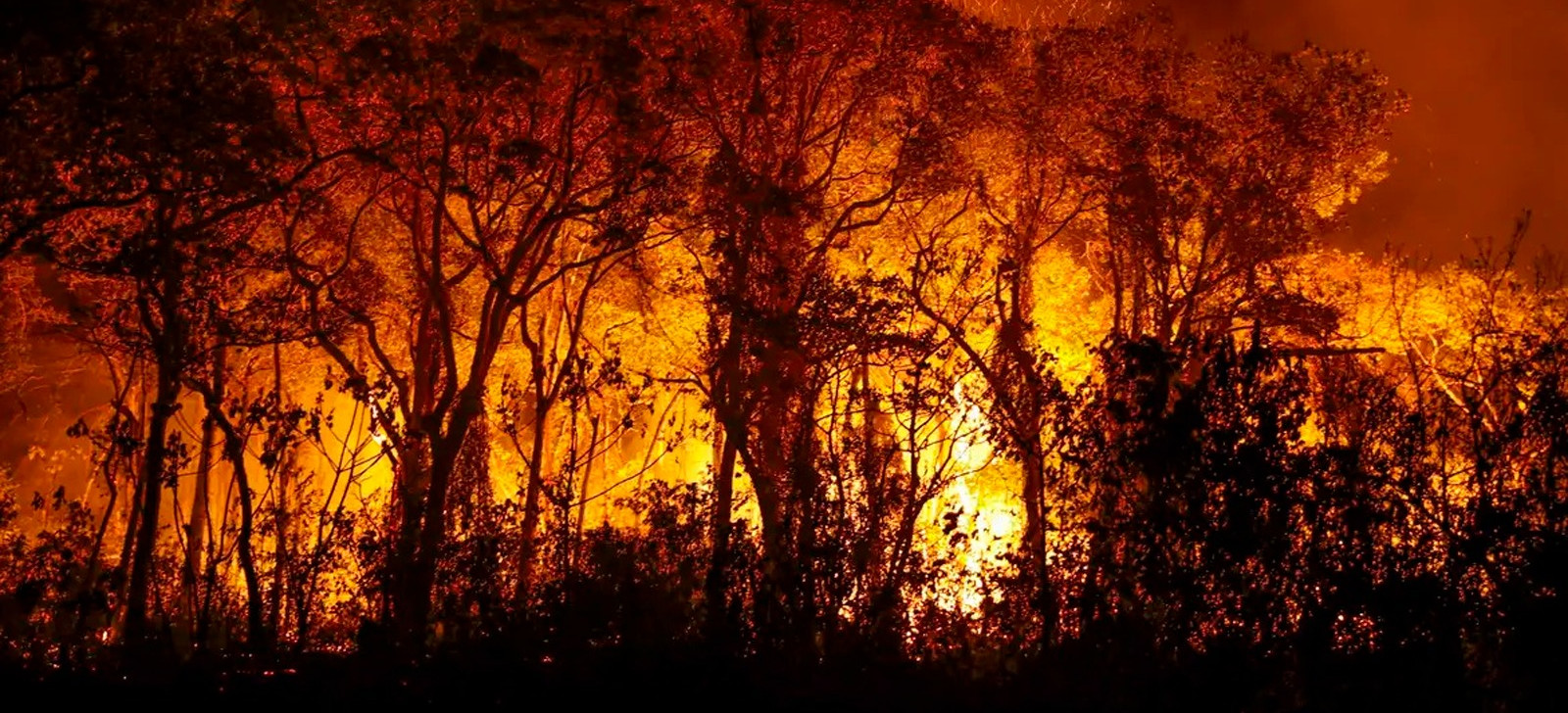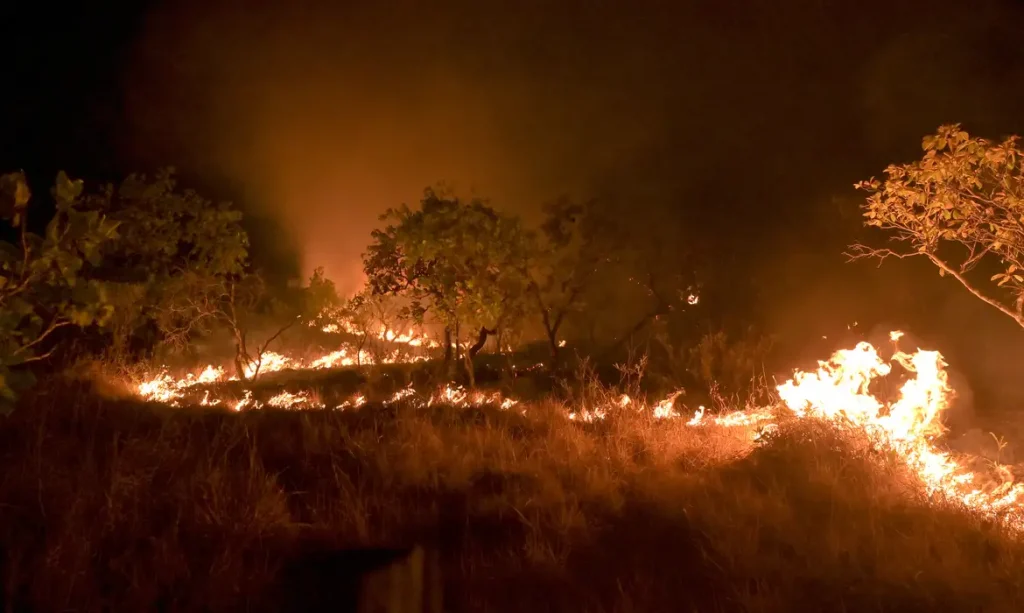Environmental agency notifies rural properties in Brazil for fire control
14 de January de 2025

By Ana Cláudia Leocádio – From Cenarium
BRASÍLIA (DF) – Brazil’s environmental agency, the Brazilian Institute of the Environment and Renewable Natural Resources (Ibama), notified on Monday, January 13th, to the owners of 5,521 rural properties in five municipalities of Roraima State, urging them to adopt fire prevention and control measures.
The notifications were published in the Official Gazette and include properties in the municipalities of Amajari (976 properties), Alto Alegre (1,596), Cantá (1,245), Iracema (929), and Mucajaí (775). In many cases, the same rural area has more than one owner. Property sizes range from half a hectare to over 34,000 hectares.
Ibama’s satellite monitoring system identified a high risk of wildfires in the region where these properties are located, prompting the need for specific actions mandated by the federal agency.

According to the notifications, failure to comply with the regulations prohibiting the illegal use of fire in agricultural and pastoral areas without proper authorisation will result in fines of R$3,000 per hectare or fraction thereof, as stipulated by Article 58 of Federal Decree 6,514/2008. This decree outlines environmental infractions and administrative sanctions, as well as the procedures for investigating these infractions.
“If the fire reaches native vegetation areas (Legal Reserves, Permanent Preservation Areas, or other categories of native forest remnants), the owner or possessor of the rural property will face environmental fines of R$5,000 per hectare or fraction thereof (depending on the specific case), as per Article 58-A of Federal Decree 6,514/2008. They may also be charged under the environmental crime legislation of Law 9605/1998”, Ibama stated.
The federal agency further warned that, under Article 58-C of the same decree, fines ranging from R$5,000 to R$10,000 will be imposed on property owners who “fail to implement fire prevention and combat measures in their properties, as required by the National Integrated Fire Management Committee and other regulatory agencies within the National Environmental System – Sisnama.
Articles 3, 15, 16 and 101 also provide for the embargo of any area where activities fail to meet regulatory requirements.
Despite the arrival of the amazonian winter and the rainy season, the National Centre for Monitoring and Early Warning of Natural Disasters (Cemaden) identified Roraima as the only state in the Legal Amazon region to appear on the “Fire Propagation Risk” map with a red alert for the period from January 13th to 22nd this year.
Ibama’s Measures for Property Owners
- 1. Construct firebreaks around areas with native vegetation (Legal Reserves, Permanent Preservation Areas, and other native forest remnants). The width of the firebreaks should be determined based on the region’s climatic, topographical, and fuel conditions.
- 2. Train personnel and provide tools, equipment, and machinery to prevent and combat wildfires.
- 3. Properly manage pastures to prevent the accumulation of flammable materials (such as overgrown exotic grasses).
- 4. Maintain constant vigilance over properties during critical wildfire periods and coordinate with neighbouring properties. At the first sign of smoke (even outside the property), take action and notify neighbours.
- 5. Check for state laws, decrees, or regulations prohibiting the use of fire for land clearing and management in the region where the property is located.

